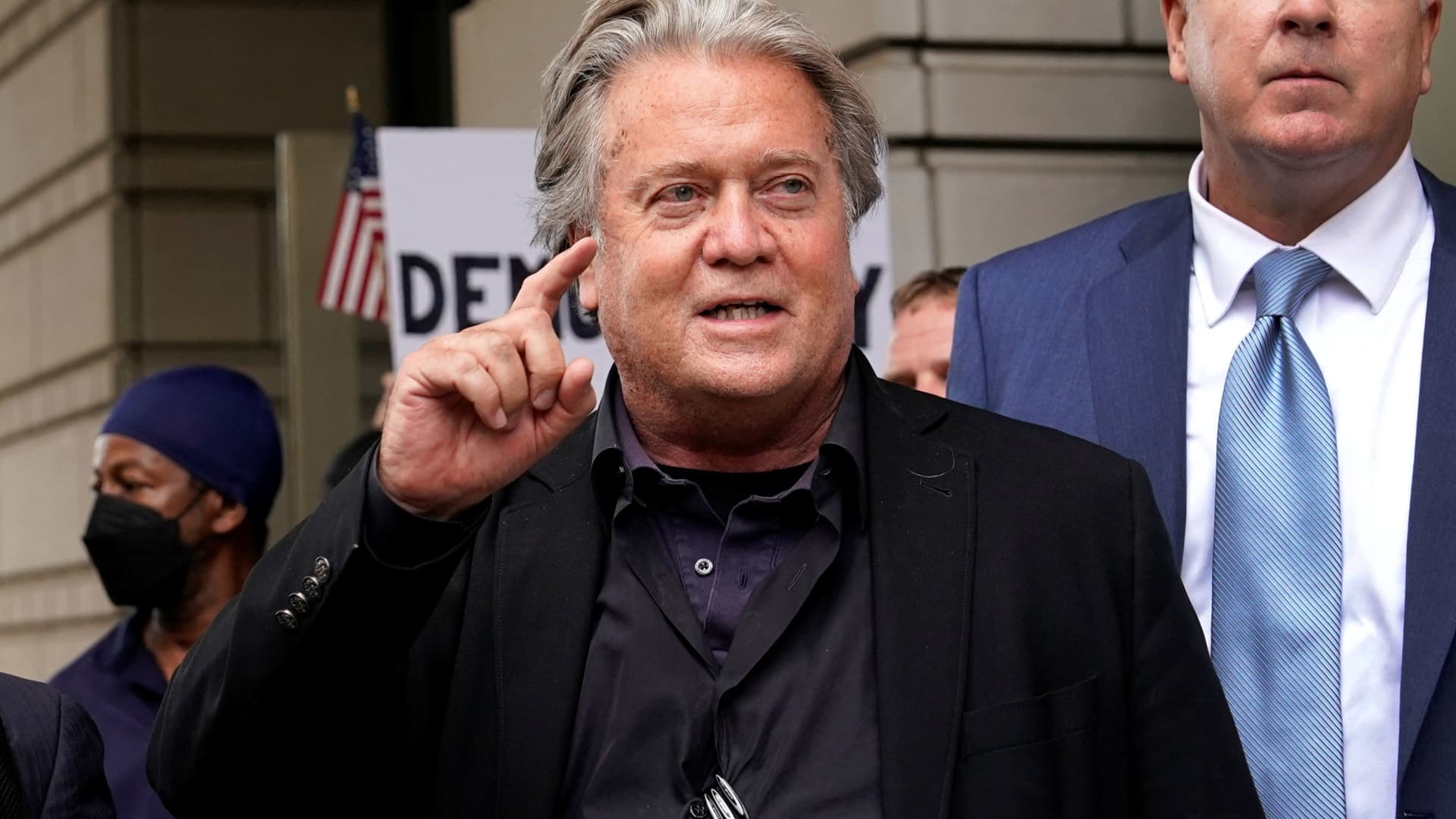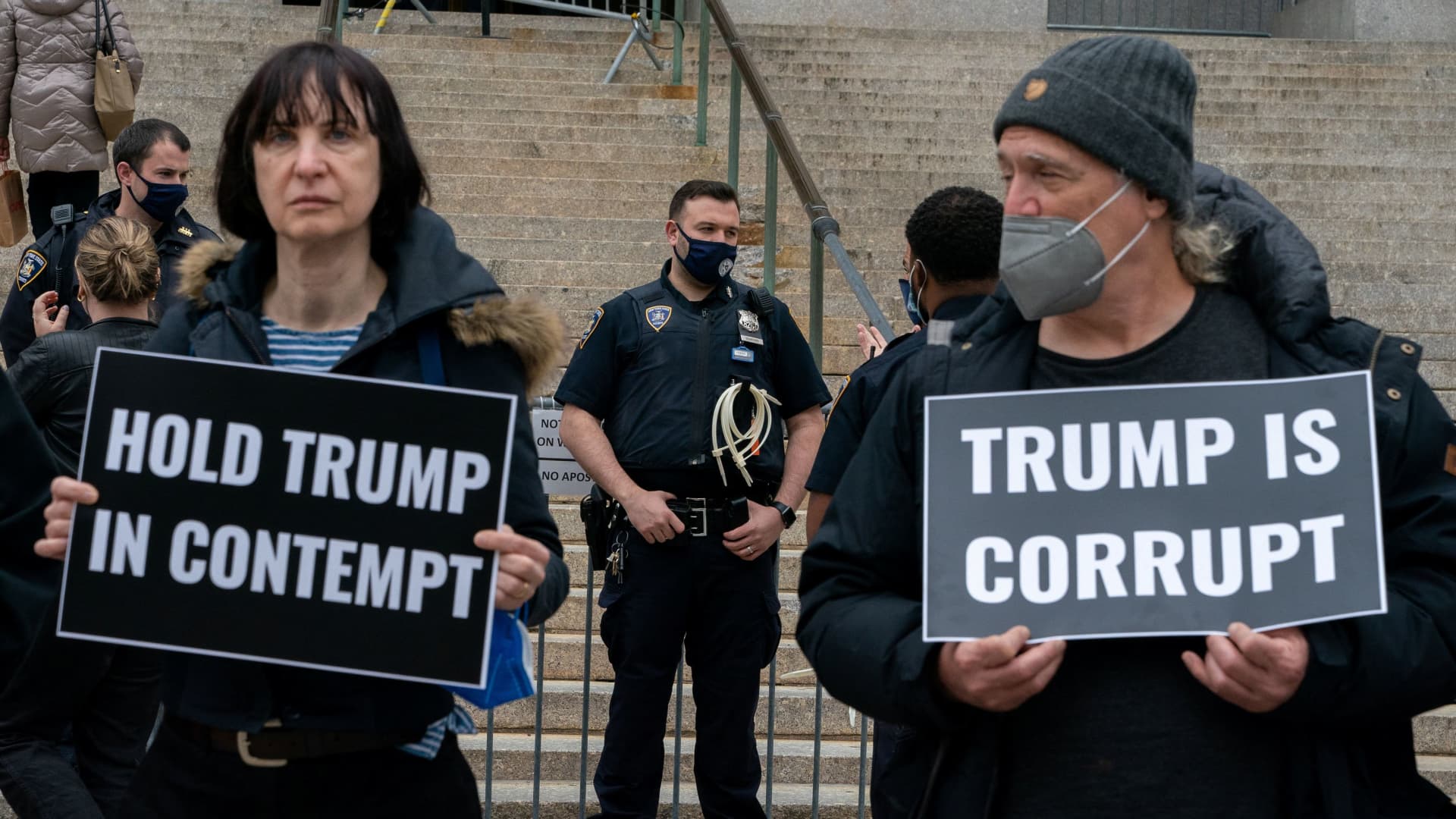Steve Bannon sentenced to 4 months in jail for contempt of Congress
Former top Trump White House advisor Steve Bannon was sentenced for defying a subpoena from the House probe of the Jan. 6 Capitol riot.

Steve Bannon, former White House chief strategist under former President Donald Trump, holds up a newspaper outside U.S. District Court on the day of his sentencing on contempt of Congress charges after refusing a subpoena from the January 6th committee, in Washington, U.S. October 21, 2022.
Kevin Lamarque | Reuters
Former top Trump White House advisor Steve Bannon was sentenced Friday to four months in jail for defying a subpoena from the congressional probe of the Jan. 6, 2021, Capitol riot.
The proceeding, which began at 9 a.m. ET in U.S. District Court in Washington, D.C., makes Bannon one of the highest-profile figures to be sentenced to jail on charges related to the insurrection. He is expected to appeal his conviction.
Federal prosecutors wanted the court to sentence Bannon to six months in jail — the top end of the federal sentencing guidelines range — and the maximum fine of $200,000.
A right-wing media figure and onetime close ally of former President Donald Trump, Bannon "consistently acted in bad faith" as he tried to impede the House select committee's investigation, prosecutors argued.
Bannon had asked federal Judge Carl Nichols for a sentence of probation. His lawyers also argued that the court should delay any sentence imposed until an appeals court could hear the case.
But Nichols ruled during the sentencing hearing that the criminal statute requires him to sentence Bannon to at least one month in jail.
The judge also agreed with prosecutors that Bannon has "not expressed remorse and has attacked the select committee at every turn."
Bannon declined to speak on his own behalf when given the opportunity, telling the judge, "My lawyers have spoken for me, your honor."
Bannon's sentencing came one year to the day since the House voted to hold him in contempt of Congress for refusing to comply with a House select committee's subpoena for documents and testimony. Bannon was indicted in November on two criminal counts and convicted after a federal trial in July.
Bannon's lawyer had argued the subpoena would violate Trump's executive privilege, the presidential power to withhold certain information from the public.
But Bannon reversed course days before his trial, saying he was willing to testify because Trump had agreed to waive his executive privilege claim.
Prosecutors called that a stunt. In a court filing Monday, they wrote that after Bannon's gambit failed to delay the trial, "he never made any further attempt to comply with the subpoena—continuing up to this day."
Attorneys for Bannon argued in part that Bannon should receive a light sentence because he was merely following his lawyer's advice when he defied the select committee's subpoena.
"The facts of this case show that Mr. Bannon's conduct was based on his good-faith reliance on his lawyer's advice," the defendant's attorneys wrote in a court filing this week.
But the Justice Department prosecutors said Bannon "pursued a bad-faith strategy of defiance and contempt" from "the moment" he was served the subpoena.
"A person could have shown no greater contempt than the Defendant did in his defiance of the Committee's subpoena," they told the court.
"The rioters who overran the Capitol on January 6 did not just attack a building—they assaulted the rule of law upon which this country was built and through which it endures. By flouting the Select Committee's subpoena and its authority, the Defendant exacerbated that assault," their memo said.
This is developing news. Please check back for updates.

 Troov
Troov 































